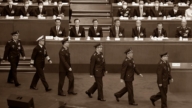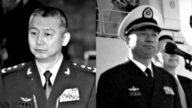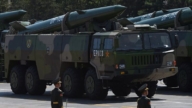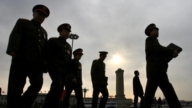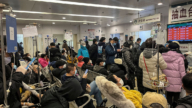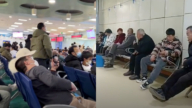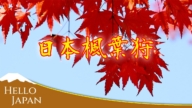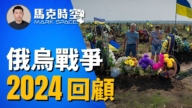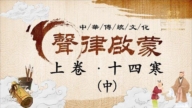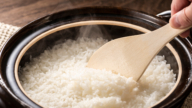【新唐人2014年09月19日讯】中共中纪委17号下午宣布:内蒙古自治区党委常委、自治区副主席潘逸阳,涉嫌严重违纪违法,目前正接受调查。大陆媒体报导,潘逸阳的腐败问题可能和矿产有关。他也是继原内蒙古统战部部长王素毅后,落马的第二名内蒙古省部级官员。请看详细报导。
潘逸阳是第五位落马的十八届中共中央候补委员。此前,四川省委原副书记李春城,原中国石油天然气集团公司副总经理王永春,广东省委原常委万庆良,山西省委原常委陈川平等四人,已相继被查。
而就在潘逸阳落马的前一周,9月10号,内蒙古金融投资集团党委书记王振坤、内蒙古自治区农村信用联合社主任武文元,于同一天被宣布调查。
潘逸阳曾在江西任省委常委,并兼任赣州市委书记7年,期间他力主稀土资源重组。2010年后,潘逸阳调任到中国另一大稀土主矿区内蒙古,分管财政金融等领域。2014年,当地调整官员的工作分工后,他负责综合经济管理、对外开放等方面。
大陆媒体报导,潘逸阳的落马和矿产资源领域的腐败有关。
早在去年9月,中共第四巡视组就指出,内蒙古在矿产资源配置、工程招投标等领域,腐败问题比较突出。同一时间,中共第八巡视组针对江西点名,有些地方在矿产资源保护、开发、管理工作中存在漏洞。
据了解,江西赣南的稀土矿以轻、中、重含量齐全而闻名,是中国有色金属基地之一,有“稀土王国”之称。而内蒙古已建成中国乃至世界最大的稀土产业基地,从稀土选矿、冶炼、分离、科研、深加工到应用,已形成完整的产业链条。
大陆时政观察人士华颇:“按道理说,如果哪个国家和地区拥有了宝贵的资源,这个国家的人民很富裕。但是在中国变了味了。这些宝贵的利益被既得利益集团,跟那些权贵们所垄断。这些利益链的利益非常丰厚,我想他主管这方面,肯定要分得一杯羹。他只是在前台,背后还会有人。”
此前,海外媒体曾流传,中共现任政治局常委、主管宣传的刘云山家族,在内蒙古掌控了大量矿产资源的所有权,包括煤矿、钼矿等。刘云山从小在内蒙古土默特右旗长大,1968年从集宁师范毕业后,长期在内蒙古任职,一直到1993年才离开内蒙古进京。
2010年10月16号,刘云山曾题词祝贺内蒙古敕勒川文化研究会成立。该研究会由原内蒙古自治区常委、统战部部长王素毅揭牌。王素毅今年7月因受贿罪被判无期徒刑。
2011年,刘云山主管的中宣部,还把内蒙古巴彦淖尔市的军地理论宣讲工作,列入所谓的十大“理论宣讲先进集体”之一。
大陆时政观察人士华颇:“这方面不单是刘云山家族里,也得有曾庆红家族。曾庆红就曾经去南非考察过,说要从南非引进这个项目,这项目已经引进了。把子孙应该继承的巨大的矿藏,他们全都给掠夺了。普通老百姓受到了环境被破坏的苦果。”
2004年6月底,时任中共国家副主席的曾庆红,访问南非。期间他强调:双方在“能源、矿产”等领域的合作,“富有成效”。据官方数据显示,2004年南非向中国出口的商品,多为“矿产品或其制品”。
此外,据海外媒体曝光,原内蒙古党委书记储波的儿子储慧斌,通过倒买倒卖内蒙古的矿产资源,牟取暴利。在中纪委介入调查后,储慧斌将内蒙古鄂尔多斯的价值几亿的一个煤矿,送给了曾庆红的儿子曾伟(维),调查的事就此平息。
大陆独立专栏作家刘逸明:“以前中共高层是每一个政治局常委都有他的利益链条,而且是从上到下,他就处于这个利益链最顶端,因为彼此都有问题,所以就你不查我,我不查你。”
由于中共官方的过度挖掘,造成内蒙古草原快速退化。有数据显示,早在2006年,全区荒漠化的土地已达总土地面积的近60%,沙化面积也达总土地面积的40%。当地牧民对当局这种“断子孙路”的方式极其愤慨,他们在上访无效后,有些人甚至用身体挡住那些开釆车或运煤车,结果有多人被活活碾死。
采访编辑/唐音 后制/陈建铭
Inner Mongolia Vice Chair Sacked over Mineral Resources
The vice chairman of the government of Inner Mongolia autonomous region, Pan Yiyang, was recently investigated over allegations of a serious disciplinary violation, according to the CCP’s central discipline organ. Mainland media say the case is related to the mining industry; Pan is the second Inner Mongolian ministerial-level official to be sacked following the downfall of Wang Suyi, the former head of the united front work department.
Along with four other members of the CCP central committee Li Chuncheng from Sichuan, Wang Yongchun from Petro-China, Wan Qingliang from Guandong, and Chen Chuanping from Shanxi—Pan Yiyang is the fifth to be sacked.
One week before his dismissal, two other Inner Mongolian officials, Wang Zhenkun and Ren Wuwen, were investigated.
Pan Yiyang had been in Jiangxi and Ganzhou for seven years, advocating the restructuring of rare earth resources. In 2010, he was transferred to Inner Mongolia, another major rare earth mining area in China, leading the financial fields. In 2014, he was put in charge of comprehensive economic management and development, after the reorganization of the local government.
Mainland media say Pan Yiyang was involved in corruptionover mining resources.
The fourth inspection team had criticized the prominence of corruption in Inner Mongolia, over the allocation of mineral resources and bidding, as early as last September. The eighth inspection team then targeted Jiangxi’s loopholes in mineral protection, development and management.
Jiangxi Gannan is known as one of China’s non-ferrous metal mining sites and a “rare earth kingdom" for its complete mines of light, medium and heavy-content rare earth metals. Inner Mongolia has become the largest site in the rare earth mining industry, in China and in the world. It has formed a complete industrial chain for rare mineral processing, smelting, separation, research and application.
China politics watcher Hua Po: “People in a country or region that has valuable resources should lead wealthy lives."
“But it’s not the case in China; people with vested interests and dignitaries monopolize precious valuables."
“The wealth passed down the interest chain is enormous; I believe Pan Yiyang must have had a slice of the pie as the leader in the area—he was just one person at the front, but there must have been more behind the scenes benefitting."
Foreign media have previously reported that the family of the incumbent Politburo Standing Committee, Liu Yunshan, controls a large number of Inner Mongolian mineral resources including coal and molybdenum-ore.
Liu Yunshan grew up in Inner Mongolia and after graduating from Jining University in 1968, he served in Inner Mongolia until 1993, before leaving for Beijing.
On Oct. 16, 2010, Liu Yunshan congratulated the founding of the Inner Mongolia Chile Culture Research Association, which was also inaugurated by Wang Suyi, from the standing committee of Inner Mongolia. Wang Suyi was sentenced to life imprisonment in July, for taking bribes.
The head of the central propaganda department, Liu Yunshan began including Inner Mongolian military theory in 2011, as one of 10 advanced groups of theories publically taught.
Hua Po: “Both Liu Yunshan and Zeng Qinghong’s families are involved—Zeng had once gone on an inspection tour to South Africa to include the country in the project. they’ve plundered the mineral resources and left the people with only environmental destruction."
In June 2004, then Vice-president Zeng Qinghong visited South Africa and stressed the fruitful cooperation of China and South Africa in energy and mining. Official data shows that in 2004, South Africa had mainly imported “minerals or its products" from China.
Overseas media also exposed Chu Huibin—son of Chu Bo, the former CCP secretary in Inner Mongolia—saying he had profiteered through speculating in the buying and selling of mineral resources. After the central disciplinary organ’s investigation, Chu Huibin gave a coal mine worth hundreds-of-millions to the son of Zeng Qinghong to settle the investigation.
Independent columnist, Liu Yiming: “Every senior Politburo Standing Committee member has his chain of interest from top to bottom, with the standing committee on the top; as everyone’s implicated, they ignore each other’s crimes."
The CCP’s excessive mining has caused a rapid destruction of grassland in Inner Mongolia. Data shows that as early as in 2006, nearly 60% of the total land area had turned into desert, and sandy areas had also increased up to 40% of the total land. Local herders are extremely indignant to the CCP for destroying their future and livelihoods. When petitioning didn’t work, some herders tried to block the mining trucks and ended up being crushed alive.
Interview & Edit/TangYin Post-Production/JianMing


